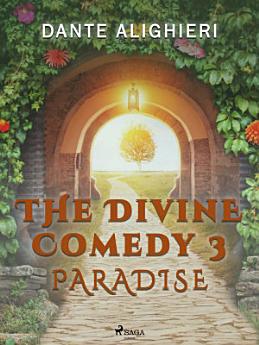The Divine Comedy 3: Paradise
2020. g. sept. · Lindhardt og Ringhof
E-grāmata
72
Lappuses
reportAtsauksmes un vērtējumi nav pārbaudīti. Uzzināt vairāk
Par šo e-grāmatu
Dante Alighieri’s journey continues in the third part of "The Divine Comedy". Opposite to the main subject in the previous two parts, "Paradiso" depicts virtues and not sins as it represents the soul’s ascent to God. Dante’s journey goes through the nine spheres of Heaven, associated with nine different virtues such as Justice, Faith, Love. Which is the last stage of Dante’s journey and what will it bring to his soul? Dante Alighieri was an Italian poet, philosopher, language and political theorist, born in Florence in 1265. He is one of the best known poets of the Middle Ages and his masterpiece "The Divine Comedy" is considered to be a representative of the medieval world-view. "The Divine Comedy" and "The New life" were written in vernacular, i.e. the speech variety that was used in everyday life. This made the literature accessible to most people and this is mainly why Dante is called "The father of Italian language". Dante’s life was divided by poetry and politics and the relationships between secular and religious authority were topics which were often depicted in his literary works.
Novērtējiet šo e-grāmatu
Izsakiet savu viedokli!
Informācija lasīšanai
Viedtālruņi un planšetdatori
Instalējiet lietotni Google Play grāmatas Android ierīcēm un iPad planšetdatoriem/iPhone tālruņiem. Lietotne tiks automātiski sinhronizēta ar jūsu kontu un ļaus lasīt saturu tiešsaistē vai bezsaistē neatkarīgi no jūsu atrašanās vietas.
Klēpjdatori un galddatori
Varat klausīties pakalpojumā Google Play iegādātās audiogrāmatas, izmantojot datora tīmekļa pārlūkprogrammu.
E-lasītāji un citas ierīces
Lai lasītu grāmatas tādās elektroniskās tintes ierīcēs kā Kobo e-lasītāji, nepieciešams lejupielādēt failu un pārsūtīt to uz savu ierīci. Izpildiet palīdzības centrā sniegtos detalizētos norādījumus, lai pārsūtītu failus uz atbalstītiem e-lasītājiem.







